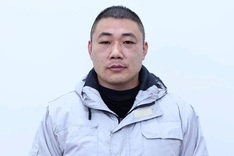The Ho Chi Minh City Department of Education and Training has been providing financial education for students, especially those in high school, as part of a soft-skills training programme for them.
 Students at a secondary school in HCM City buy street food. —VNS Photo Truong Vi Students at a secondary school in HCM City buy street food. —VNS Photo Truong Vi |
At a workshop on providing financial literacy for young people held on Wednesday, Nguyen Hoai Chuong, the department\'s deputy head, said it was important to help students understand the value of money and plan their own expenses.
The department in co-ordination with the US NGO of Save the Children have taken this project to four high schools — Marie Curie, Nguyen Huu Huan, Le Hong Phong, and Hung Vuong — since last year.
More than 6,000 students in these schools have benefited, Hoang Thu Huong, manager of Save the Children\'s southern office, said.
Financial education for students has become popular in many countries like Singapore, South Korea, the US, India, and Australia.
Huong and her colleagues have studied the curricula in these countries and compiled one suitable for Vietnam.
The project has enabled the students in the four schools to manage their money and spend it properly, Huong claimed.
Tran Thi Hue, a project official, said students these days had more money than in the past.
She and her colleagues found out from the parents of 27 students at Nguyen Du and Marie Curie High Schools that they gave their children VND50,000–300,000 (USD2.4-14) a week.
However, a 2009 study by Tuoi Tre (Youth) newspaper of 100 students at Le Quy Don and Marie Curie found that a more than one third of them got VND3 million–5 million (USD160-260) a month.
Most of them did not know how to spend or save properly, Hue said, and frittered it all away on shopping, playing games, eating, and watching films.
Only some of them saved some money to buy books and other things they needed without asking their parents for more, she said.
A 2010 study of 400 high-school students by Save the Children found that many of their parents never taught them about money or discussed their expenditure with them.
Almost a third thought it was too early to teach their children about expenditure, Hue said.
Though the rest said it was very important to provide financial education early to children – at 11 or 12 – to prevent profligate spending and even stealing money for spending, they did not know how to do it and wanted their schools to teach them instead.
Ho Tan Minh, a teacher helping with the project at Marie Curie High School, said students and their parents liked it.
Many parents wanted the school to maintain and even increase these classes, he said.
The students have become more aware of the value of money and consider ed carefully before spending on things like clothes and shoes, he said.
Chuong said the department would introduce the programme at two more high schools this year and more in future.




















